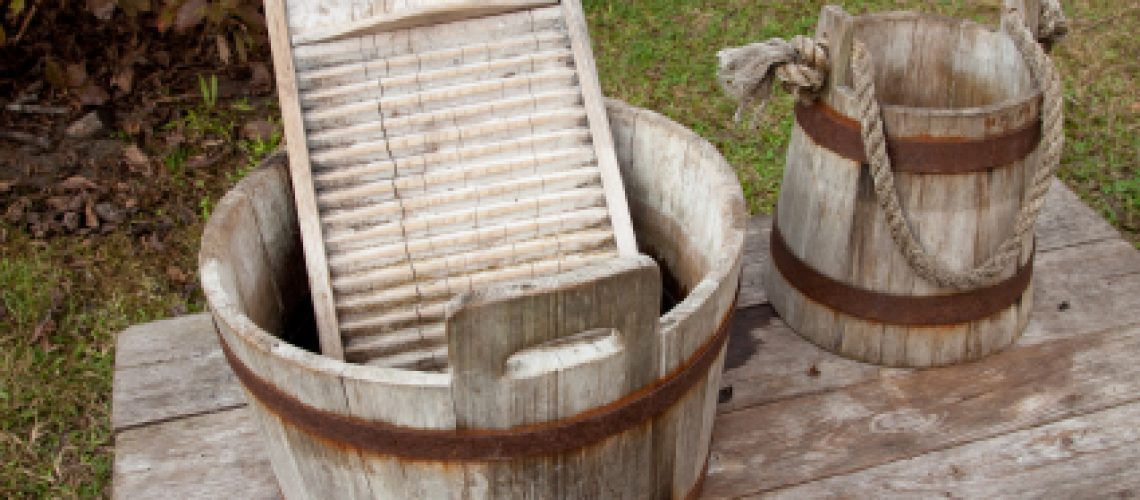Homemade Soap
There is a sub-culture rising up around us that is taking its place in the mainstream. Thanks to the internet, reality television and the proliferation of DIY (do-it-yourself) – along with an enthusiasm for environmental friendliness – we have a new generation of males and females beginning to embrace things that many of our grandmas, great-grandmas and great-great-grandmas grew up doing. One of those things is soap making, which brings us to the topic at hand. Is homemade laundry soap a viable option for your washing machine as compared to its commercially prepared counterpart?
Let me start by saying that your washing machine manufacturer is the recommended source of information when it comes to your washing machine. Particularly if your washer is under warranty, you want to be careful that you don’t use anything in your washing machine that goes against your manufacturer’s recommendations as you could void your washer’s warranty in the event that anything untoward should occur. Disclaimer aside, let’s examine the issue of using homemade/natural laundry soap by getting a basic understanding of the differences between a laundry detergent and a laundry soap. While we use the terms interchangeably there is a difference.
Soap & the Washer
Soaps are created when fats are combined with lye (sodium hydroxide). The chemical reaction which ensues causes the lye to turn the oil or fat into soap. Soaps are emulsifiers; they allow water to mix with oil enabling dirt to be removed from fabric and carried away in rinse water. (Warm or hot water melts fats and makes it easier for them to be pulled out of fabric as your washing machine is agitating and then get swept away in rinse water.) Because there was severe rationing of both animal fat and vegetable oils during World War 1 and World War 2, detergents were developed. (“How Do Detergents Clean?”)
Detergent & the Washer
A laundry detergent is a surface-active agent, otherwise known as a surfactant. Surfactants reduce the surface tension of a liquid. In the case of your washer, detergents allow water to penetrate solids better and to carry dirt and grime from fibres more effectively than water alone. Original laundry detergents had a petrochemical base, though now most are made from oleochemicals (of plant or animal origin).
Any of the recipes I have found for homemade laundry soaps are soaps in the chemical sense. Using either commercially available bar soap or homemade bar soap as the base, most homemade laundry soap adds some kind of natural whitening agent such as borax, but it is still a soap. (More about borax in part 5 of this series, “Doing Laundry Au Naturel”.)
Is Homemade Better?
So is homemade laundry soap more effective, more environmentally friendly, and less expensive than its store-bought counterpart?
Is Homemade Cheaper?
The comparisons indicate that the price per load for homemade laundry soap is significantly lower than store bought, however none of the comparisons factored in the time it takes to make the laundry soap. I suspect that if you factored in your time the savings might disappear, though I did not find any data that took into account one’s time.
Is Homemade Greener?
Is homemade laundry soap innately more “green”? If you are making your soap from scratch without using a commercially prepared bar soap as your base, you are in direct control of your end product and know the extent of the “greenness” of the product you are putting into your washer. However, since laundry detergents in Canada are now phosphate free, the whole gamete of products available for your washer technically is green now. Whether one brand is greener than another is a subject for each person to research and decide individually.
Does Homemade Clean Better?
I found no empirical evidence to support whether or not homemade laundry soap cleans better than commercially prepared laundry soap or detergent. There was no data accounting for all of the variables such as, hardness or softness of water, adequate sampling of commercial brands and variations in batches of homemade soap as well as different recipes.
In my opinion, a high quality homemade soap could be better than a very cheap and low quality commercial laundry soap that contains a lot of useless bulk. On the other hand, a quality commercial laundry detergent would unquestionably outperform a homemade laundry soap. The reason for this is the “scum factor”.
Soap scum is the result of water (containing magnesium/calcium) reacting to the fat component of soap – the harder the water the worse the scum factor. Because detergents “deter” dirt as well as scum, and many producers include a small amount of soap in their formulas as well, my choice would be a quality laundry detergent such as Persil, a high quality German detergent that has been used in Europe for years. Available in both liquid and powder, Persil is an excellent choice for high efficiency top loaders and front loaders as well. (You can call our parts line at 1-800-941-4755 as Gord’s Appliance does carry the product or search Mr. Google for suppliers in your area).
So while I don’t think I would ever favour homemade laundry soap over a quality commercially produced laundry detergent, I do have some serious preferences for homemade when it comes to pie, jam and bread. And I’m always willing to lend my taste testing abilities if you need some help with a bit of research!
If you have experience making homemade laundry soap, we are interested in your feedback. Let us know how you think homemade laundry soap stacks up against laundry detergent.

